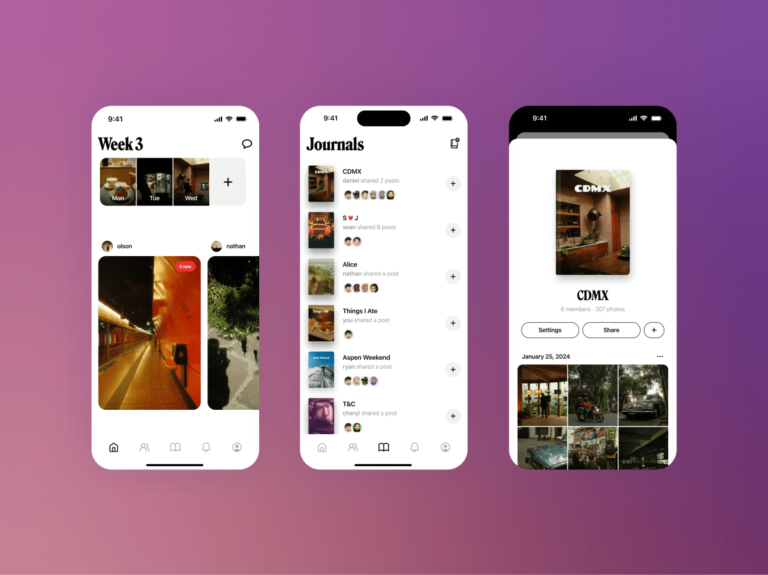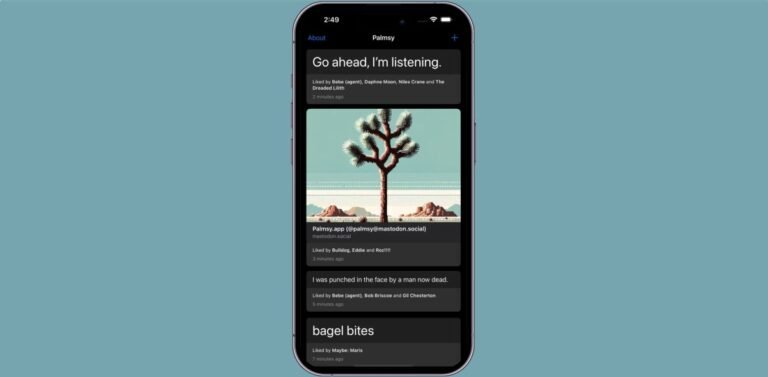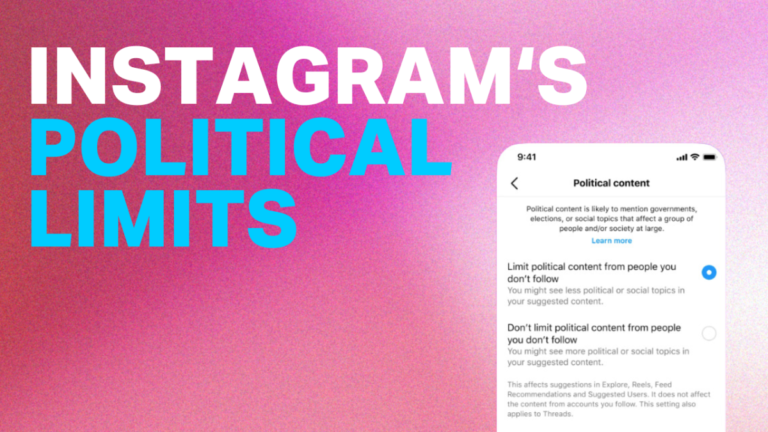
It’s a flexible way to share photos with your favorite people and create visual records of whatever matters in your life.
Retro’s main feature is a way to share your most important photos of the past week with your favorite people.
Retro’s answer to this use-case is journals: A new flexible way to share photos as a group.
You can also have a journal with your partner to share important moments you’ve spent together without spamming all your friends on Retro.
Building a social consumer app involves many experimentations — and journals are one of those experimentations.

OpenAI captivated the tech world a few months back with a generative AI model, Sora, that turns scene descriptions into original videos — no cameras or film crews required.
So he launched Higgsfield AI, an AI-powered video creation and editing platform designed for more tailored, personalized applications.
In fact, Mashrabov sees social media — and social media marketing — as Higgsfield’s principle money-making niche.
So we believe video generative AI solutions will be a core solution in helping them to achieve it.”Of course, Higgsfield isn’t immune from the broader challenges facing generative AI startups.
It’s well-established that generative AI models like the kind powering Diffuse can “regurgitate” training data.

The account operated by Biden’s team published a message regarding the president’s support of reproductive freedom on Threads, Meta’s up-and-coming Twitter/X competitor.
Soon after, Threads users noticed that his post sported a Threads’ fediverse sharing logo — a circular shape that resembles planets orbiting a star, which gives a sense of the interconnected universe that makes up the fediverse.
When Meta introduced Threads, its text-focused Twitter/X competitor, the company said it planned to federate the app so users on Mastodon and other networks could see and respond to Threads’ users posts.
Late last year, Threads began testing that integration and, in March, it opened up fediverse sharing to Threads users in beta.
For example, at present, Threads users can’t see who replied or liked their posts from other servers and can’t share their posts with polls.

Aneja’s current research focuses on the societal impact of algorithmic decision-making systems in India, where she’s based, and platform governance.
Aneja recently authored a study on the current uses of AI in India, reviewing use cases across sectors including policing and agriculture.
At the same time, India had launched its Digital India mission and National Strategy for Artificial Intelligence.
What are some issues AI users should be aware of?
Investors need to consider the entire life cycle of AI production — not just the outputs or outcomes of AI applications.

We’ll publish several pieces throughout the year as the AI boom continues, highlighting key work that often goes unrecognized.
Kate Devlin is a lecturer in AI and society at King’s College London.
I guess it’s a two-pronged thing: we need more women in visible, top positions, and we need to tackle sexism in schools and beyond.
What are some issues AI users should be aware of?
Hold the companies responsible for considering things like human rights, labor, sustainability and social impact in their AI supply chain.

When you sign up to a new social network, you have zero friend, zero follower, zero like.
A new app called Palmsy is trying to act as social media methadone by letting you post anything and getting likes on them.
While the app is reading your contact details, because all posts are local, contact information is not sent to a server.
There have been multiple time-limiting apps that try to help when it comes to reducing social media addiction.
Some developers have also released very basic apps to post dumb posts without consequences as well.

As the election cycle heats up, Instagram and Threads will be cooling down the amount of political content entering many users’ feeds.
These changes, which limit the reach of political content from accounts users don’t already follow, are enacted by default.
If you’re already wondering how to get that kind of content back into your feed, you can follow our guide on changing Instagram’s political settings here.
Threads will host, but not “amplify” news, per remarks from its head Adam Mosseri’s last year.
And what posts and topics will Instagram actually deem to be political?

Two weeks ago, TechCrunch broke the news that LinkedIn was getting into games, helping users “deepen relationships” through puzzle-based interactions.
And on Wednesday, TechCrunch reported that the Microsoft-owned social network was experimenting with short-form videos.
It’s as if LinkedIn is targeting a whole new “type” of user — one caught in limbo somewhere between two other well-known social networks.
And LinkedIn shouldn’t try to be Twitter or TikTok — it’s aimed at an entirely different audience.
And now with games and short-form videos in the mix, LinkedIn wants even more of the action.

It’s election season in the U.S., and Instagram has changed the way that it recommends political content.
But the platforms won’t proactively recommend content about politics, which could limit users’ ability to learn about political issues from people outside of their existing circles.
Plus, Instagram’s definition of political content is a bit broad — it describes political content as anything “potentially related to things like laws, elections, or social topics.”If these changes bother you, you can adjust your settings to override Instagram’s political content filters.
Changing Instagram’s political content settingsIf you don’t want Instagram to filter out political content from your feed, here are steps to opt out of these changes.
Limiting political content is going to have a ripple effect.

A federal judge sided against Elon Musk today, dismissing a lawsuit brought by Musk and X that targeted a nonprofit that researches online hate.
In the lawsuit, X claimed that it lost “tens of millions of dollars” as a direct result of the CCDH’s research.
Musk, who personally directed the lawsuit, called the CCDH “an evil propaganda machine” in replies on X.
The nonprofit, formed in 2018, researches trends in hate speech, extremism and misinformation on major social networks.
Unlike the CCDH lawsuit, X is suing Media Matters for America in Texas, which doesn’t share California’s protections against frivolous lawsuits designed to stifle free speech.













